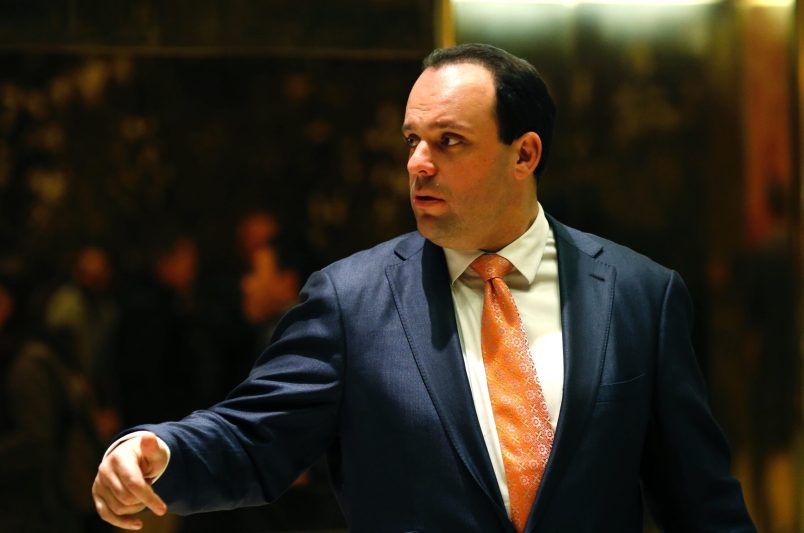“You also mentioned what you call ‘privatization’ of Social Security,” CNN anchor Judy Woodruff told House Minority Leader Dick Gephardt in an interview last Thursday. “The Republicans are crying foul. Your counterpart running the campaigns for the Republicans in the House are (sic) saying the Democrats are being false. They’re being misleading, that they are not talking about privatizing Social Security.”
We’ve previously noted how easy it usually is for conservatives to bully reporters with charges of media bias. There’s a mix of poor judgment, poor memory, insecurity and low-grade cowardice which makes this possible — a messy collision of conservative self-pity and journalistic self-loathing.  But let’s set aside that deeper issue for a moment to look at a particularly revealing example of the phenomenon.
But let’s set aside that deeper issue for a moment to look at a particularly revealing example of the phenomenon.
Both parties try to tag their opponents’ policies with phrases and labels intended to place them in the most negative light. The best recent example of this is the Republican rechristening of the estate tax as the ‘death tax.’ But it’s an equal opportunity game. And both sides will lean on reporters not to start using these self-serving labels as straightforward descriptions of the issues being discussed.
It was in this vein that the National Republican Congressional Committee sent out a memo last Monday claiming, inter alia …
Democrats are doing all they can to blur the very important distinction between ‘personal accounts’ and ‘privatization.’ They are employing the word ‘privatization’ for the specific purpose of eliciting negative reactions among seniors because it carries connotations of dismantling the publicly run Social Security system. ‘Privatization’ is a false and misleading word insofar as it is being used by Democrats to describe Republican positions on Social Security.
Despite this, some reporters — even some national reporters — continue to inaccurately describe the concept of personal accounts as privatization. To the extent that reporters are wittingly or unwittingly complicit in the Democrat strategy to make ‘personal accounts’ and ‘privatization’ one in the same, they are using the power of the press to promote inaccurate Democrat spin and taking sides in the midterm elections.
Reporters have historically rejected partisan spin phrases as descriptors of policy proposals. They have done this because semantics matter. In the past, reporters have not used inaccurate or politically loaded descriptions in reporting because it violates a critical component of the journalistic code of ethics – reporters must distinguish between advocacy and news reporting. That is precisely the reason that most newspapers use ‘estate tax’ as opposed to ‘death tax’ and ‘minimum wage’ instead of ‘living wage.’
It is very important that we not allow reporters to shill for Democrat demagoguery by inaccurately characterizing ‘personal accounts’ and ‘privatization’ as one in the same.
Woodruff’s question to Gephardt a few days later was clearly in response to this memo and a broader Republican campaign to mau-mau reporters out of using the word ‘privatization’ in this context.
No two ways about it: this argument couldn’t be more stupid or dishonest. Why it’s not one of Tim Noah’s Whoppers of the Week I’m really not sure.
You can make a pretty good case that ‘privatization’, or more specifically ‘partial privatization’, is just objectively the most accurate description of Republican policy — that is, diverting about a fifth of Social Security’s funding base into private accounts for individuals.
But why bother with mere objective accuracy, especially since ‘objective’ descriptions are going to be hard to come by on such a charged issue? Why not just go with the word Republicans have always used? The simple truth is that ‘privatization’ has always been the word Republicans themselves used to describe their policy. That is, it was until they rather belatedly realized that their policy was killing them with voters.
Examples? My god, where to start? Grover Norquist, American Spectator, June 1998: “With $14 billion of the surplus, Congress could give every working American $100 in his own IRA. Americans will then be able to compare their return on their IRA with their negative rate of return on Social Security and this will highlight the case for partial privatization.” In June 1999, again in the Spectator, Norquist lauded Steve Forbes’ plan for “privatization of Social Security” and said Forbes had “convinced many Republicans that the flat tax and privatization were fit for polite company.” Or conservative Washington Times columnist Donald Lambro, April 27th, 1998: “Mr. Moynihan’s plan [essentially the plan noted above] would move toward partial privatization.” Or Fred Barnes in The Weekly Standard, April 6th, 1998, again referring to the plan noted above: “[T]he White House may be ready to accept partial privatization as the price of a reform deal…” Bill Kristol, George Will, Larry Kudlow (just the ones I looked up) and probably every other conservative under the sun has long described the move to private accounts as privatization.
So friends and foes of the policy have always called it ‘privatization’ or ‘partial privatization.’ Now the term (and the policy, for that matter) is a political loser. So Republican operatives are cooking up lies to get themselves off the hook. Everyone has to change the name. And if they don’t, they’re biased against conservatives.
What reporter would be foolish enough or sorry enough to fall for this? I guess we’ll have to wait and see.






